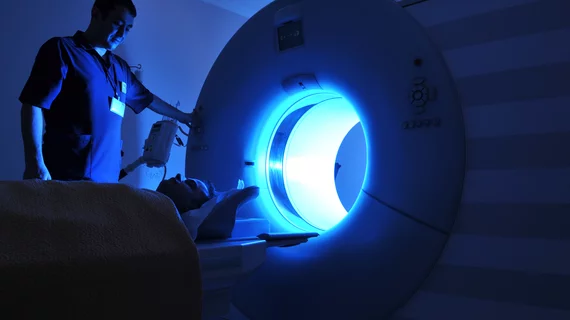MRI technology that provides whole-body composition reports gets FDA greenlight
New technology that assesses body composition by analyzing muscle and fat on a whole-body MRI scan has received 510(k) clearance from the U.S. Food and Drug Administration.
AMRA Medical, a digital health company that specializes in body composition analysis, has been authorized to distribute their AMRA BCP Scan (Body Composition Profile) technology in the U.S. and Canada, the company announced on Feb. 23.
"The AMRA BCP Scan brings health assessment into a new era. Rather than relying on BMI or waist circumference, we have precise fat and muscle measurements so a physician can really see what is going on inside the body," AMRA CEO Eric Converse said in a statement.
The BCP scan is being offered as a medical device service. It uses AMRA’s rapid “neck-to-knee" MRI protocol to produce a patient-specific body composition analysis based on measurements obtained from the images. The report contains information such as measurements of muscle volume, visceral and subcutaneous fat, as well as liver fat volumes. Once the protocol is completed, physicians are provided with the report that also offers a comparison of the findings to AMRA’s reference database.
Physicians can use the report findings to cater disease management in a way that is specific to their patients without the need for additional tests.
"Our protocol only adds minutes to an already prescribed MRI, and because we deliver the results through a simple report, clinicians and patients can easily understand the information and potentially use that information to make healthy lifestyle choices," Converse said.
Similar stories:
FDA clears tool for producing muscle assessment scores from MRI scans

